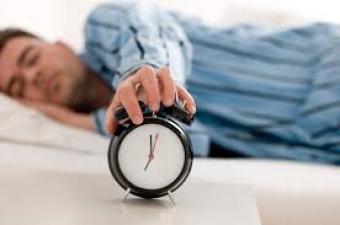Wednesday Wellness Word
8 Sleep Myths Put to Rest
Say goodnight to these common nighttime myths and wake up refreshed. There;s so much to do during the day that skimping on shuteye can seem like an easy solution. But a good night's sleep is more than a luxury. It's an essential part of staying healthy. So before you give up on a good night's rest, see if you've fallen for one of these common sleep myths.
Myth: Your body and brain shut down during sleep.
Fact: In some ways, your body actually becomes more active while you sleep. Your brain forms new learning and memory pathways. And hormones help repair cells, fight infection and regulate blood sugar.
Myth: Skipping one hour of sleep at night won't affect you the next day.
Fact: If you don't get enough sleep, a sleep debt builds up that may take several nights of sound slumber to repay. This can affect your health and make you feel tired during the day.
Myth: Your body adjusts quickly to different sleep schedules.
Fact: It can take a week or more to make a substantial change to your sleep–wake cycle.
Myth: People need less sleep as they get older.
Fact: Older people don't need less sleep. But they may get less sleep because of insomnia or other medical conditions.
Myth: You can make up for lost sleep on the weekends.
Fact: That may help you feel more rested in the short term. But it's not a good long-term solution. And an inconsistent sleep schedule can make it that much harder to get up Monday morning.
Myth: Naps are a waste of time.
Fact: They can be restorative. But to avoid having trouble falling asleep at night, try to limit them to 20 minutes — and avoid napping after 3 p.m.
Myth: Snoring is a normal part of sleep.
Fact: Snoring can make you sleepy during the day and increase your risk for diabetes and heart disease. It also can be a sign of sleep apnea, a serious sleep disorder that should be evaluated and treated.
Myth: The main cause of insomnia is worry.
Fact: Although worry can cause insomnia, problems falling or staying asleep can also be caused by certain medications, depression, anxiety disorders, asthma, arthritis or other medical conditions.
Learn more about healthy sleep at liveandworkwell.com.


